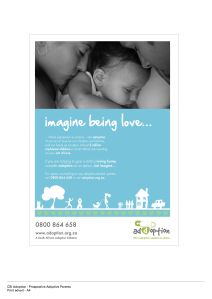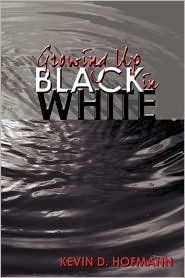Most South Africans will remember Laurie Fraser, the unmarried father of a child who was put up for adoption by his mother, Fraser’s former partner. The court granted the adoption, but Fraser applied to have it set aside because he wanted to adopt the child himself. Although he lost the application, his case was instrumental in changing South African legislation. Today, the consent of both birth parents is required before a child can be placed for adoption. Sadly, however, there are many other birth fathers like Laurie who, before 1997, had no legal say over the parentage of their children. The story below is by one such father, who has been desperately seeking his lost children for more than 30 years.
My name is Guy and my former wife is the biological mother of my two children. We are first cousins and met for the first time in 1975. We fell in love and after our son was conceived in April 1976 we decided to marry. This was not to be, however, as my wife-to-be decided to abandon our plans of marriage and give up our child for adoption. In my opinion, she was influenced in these decisions by her father. Although it was against my wishes, I was forced to abide by and accept this unilateral decision, because at that time I had no legal or even basic human rights over our unborn child.
My former wife was admitted to Fatima House in Pretoria through the Catholic Women’s League. I was instructed by her father (my uncle) not to disclose her whereabouts to anyone, including members of my immediate family. If anyone were to ask what had happened to her, I was to tell them that she had been transferred to Addington Hospital in Durban to complete her nursing diploma.
After about two months I received a letter from my former wife, informing me that her father had agreed to allow me to visit her on weekends at Fatima House in Pretoria. I was overjoyed at this apparent change of heart and visited her regularly, taking her out for picnic lunches and pleading with her to change her mind, but she remained set on giving our child up for adoption.
This period was, to say the least, very traumatic for me. I was sworn to secrecy and forbidden by her father to disclose any information about her whereabouts and the impending secret adoption. Yet I loved her and wanted to marry her and so continued to visit her.
On 13 January 1977 our child was born at the then HF Verwoerd General Hospital. No one told me about the baby’s birth, and I only learned of it two days later when I paid my weekly visit to Fatima House. I immediately went to the hospital and asked to see my future wife and our child, but was informed by the nursing staff that they had instructions not to allow me any form of access to her and our child. I had no alternative but to leave, and resigned myself to the fact that I was powerless under the circumstances and that I would have to accept the loss of our child, as well as the abandonment of our marriage plans.
About a week later I visited her at her parents’ home in Edenvale, intending to try one last time to engender a change of heart in her. It was only at this point that I learned that she had given birth to a healthy boy. Again I asked her to marry me, but she was resolute in her decision not to do so and stated that she had given up our son for adoption. I felt crushed and so was finally forced to accept that we would not marry and that our son was “lost”. I wished her well for the future, paid my respects to her parents, and left.
Two months later, to my surprise and amazement, she contacted me and we resumed our relationship. In hindsight, I should have walked away, but I still loved her and had forgiven her for putting our son up for adoption.
My son’s birth surname is Lindenberg and he is recorded under the christian names of Graham Henry at the Catholic Womens’ League (CWL) in Pretoria. I have a copy of the document from the CWL verifying this. I am not sure whether he is recorded in the official government records under the birth surname of Lindenberg, as I have been denied access to these records. I do know, however, that he was adopted by an Italian couple and his adoptive father, who is a registered practising quantity surveyor in South Africa, is a South African citizen. Today Graham Henry is a qualified chartered accountant working in the USA. His non-biological sister was also adopted by his adoptive parents.
My son’s mother and I married in July 1977, and on 4 December 1978 our daughter, Kim Helen was born in Johannesburg.
Unfortunately, my wife and I divorced in December 1981 and she had our marriage annulled in the Catholic Church. I continued to see my daughter in accordance with my visitation rights. She was always so happy to see me and would rush to me and hug me tightly whenever I arrived to take her out for the day.
In 1988 I was subjected to a High Court action launched against me by my former wife, with the financial backing of her then second husband, the sole purpose of which was to alienate my daughter from me and destroy me financially. Sadly, she succeeded on both counts. My daughter became reserved and distant with me, a development which caused me great concern.
Thanks to her husband’s financial backing, my former wife’s resources were far greater than mine. I exhausted my entire life savings defending, inter alia, the rights of my daughter and me to continue seeing each other. In today’s terms that unnecessary and vindictive litigation in the High Court cost me approximately R700 000.
I was on the brink of financial ruin and to this day have never recovered from it all. To compound matters further, my former wife launched a concomitant action in the Magistrates Court claiming excessive maintenance. I was forced to concede defeat both in my interests and that of my daughter, who was suffering under the enforced destruction of our once loving and close father-daughter relationship.
She was told to call me “Guy”, to acknowledge her step-father as “Daddy” and made to feel embarrassed by her surname, which was now different to that of her mother and step-father. My daughter was suffering so much; someone had to call an end to it. Notwithstanding my by now dire financial situation, I could not and would not continue to allow my very young and impressionable daughter to suffer any further. She could not understand it all, but I could, and so made the heart-rending decision to let her go. I agreed to allow her to be adopted by her step-father.
My decision was also influenced by the recommendation of the professional social workers at the Catholic Women’s’ League in Kensington, Johannesburg, with whom I had been engaged in extensive consultations, that it would be in my daughter’s best interests to be adopted, given the unfortunate circumstances which I could not alter or control and under which she was continuing to suffer so much.
In February 1998, when my daughter looked me up when visiting this country (presumably with her mother), she informed me that her now adoptive father had committed suicide the previous year. Whilst I sympathised with my daughter at her loss, I also felt a surge of hope that this was the beginning of a reunion between us.
Subsequent to this visit, my daughter and I corresponded and I really believed that we were finally reunited, but this was soon to change. In early 2003 I received a telephone call from her mother, informing me that our daughter had been involved in an abusive relationship with her boyfriend. It sounded to me as if they had had a fight of sorts as the time of the call was about 2.00 am USA time, and I still think that I wasn’t far off the mark in surmising that during their altercation I was probably used as a scapegoat of sorts for the problems in my daughter’s life, and hence the call to me. I spoke to my daughter and assured her that I loved her and would always be available to help her where I could.
Subsequent to this telephone call, I received SMS messages from my daughter informing me that she had enlisted in the US Army. I was quite shattered by this news and couldn’t understand why she had dropped out of university in her final year of study. Clearly something was wrong, but to this day I still do not know exactly what caused her to drop out of university, enlist in the army and shut herself off from me. All my letters to her were returned unopened and my attempts to contact her proved fruitless. In a last-ditch attempt, I plucked up the courage to phone her mother in the USA and ask her for Kim’s contact details. Kim’s mother was extremely hostile and belligerent in her response and refused to give me any information.
As far as I know, Kim is married to an officer in the US Army, and they now have two children (I have yet to meet my grandchildren).
In her last letter to me in April 1999 Kim wrote: “I’m really desperate to meet him (my son and her brother) when I come home next time”. She has not corresponded with me since and I do not know what has happened to her. I too desperately want my son and daughter to meet and get to know each other as brother and sister.
I will never give up my quest to find my two children and I trust and hope that they will eventually come to read this document, including those already in the possession of the Department of Social Development and other official bodies involved in this matter.
While these documents are by no means exhaustive, I believe that they present the situation and the factors surrounding the loss of my two children in a correct and proper context, and that by reading these documents, my children will be better equipped to make an informed, objective and balanced appraisal of the events and decisions that culminated in their respective adoptions.
Guy

 As a South African who grew up in the
As a South African who grew up in the 
